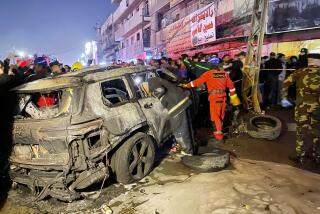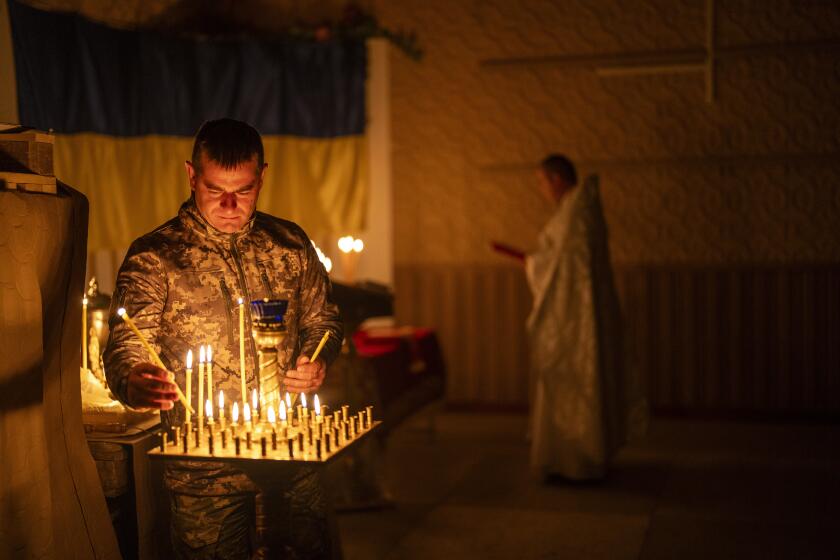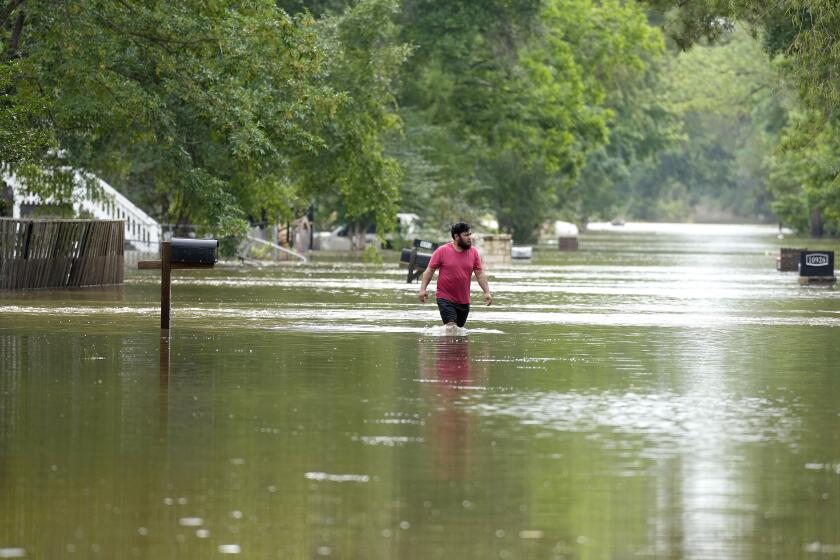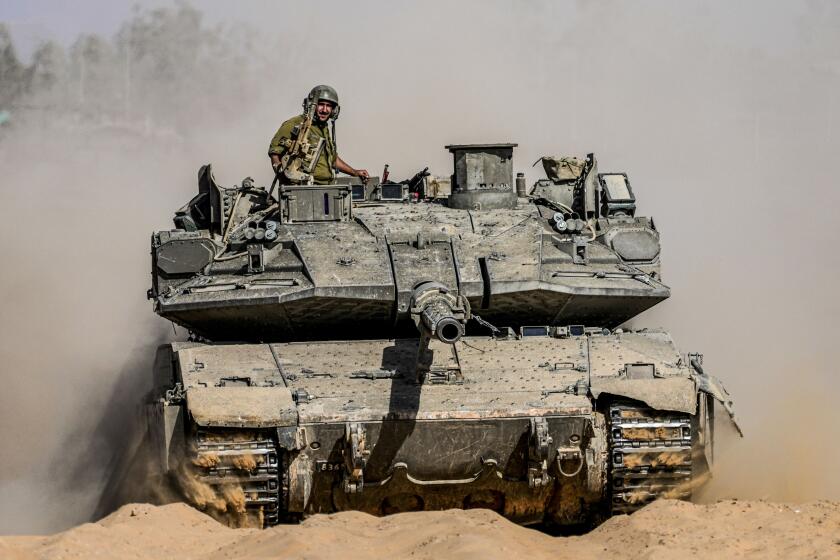Winning Kurdish Faction Reports Easy Victory With Iraqi Help
The weekend battle for the northern city of Irbil--combat that triggered U.S. missile strikes against Iraqi air defense systems--was a pushover for Kurdish fighters and accompanying Iraqi troops, victorious Kurds said Tuesday.
But in the aftermath came looting and mass political arrests. And on Tuesday, with power and telephones out, water scarce and tensions high throughout the Kurdish north, the United States pointedly withdrew international military observers and economic relief officials who had been helping protect the contentious Kurds from Iraqi President Saddam Hussein.
Looking tense and tired in victory, Kurdish leader Masoud Barzani, whose troops captured Irbil with the help of Iraqi forces, told reporters at his headquarters in this town north of Irbil on Tuesday that U.S. missile attacks against Iraq were “just part of [President] Clinton’s election campaign.”
Troops of Barzani’s Democratic Party of Kurdistan (KDP) said they encountered only slight resistance in Irbil, which serves as the capital for the mountainous Kurdistan region; the battle there ended quickly Saturday without great damage or casualties, they said. The KDP said seven of its soldiers were killed and that about 60 bodies of defending soldiers of the rival Patriotic Union of Kurdistan (PUK) were counted in a hospital courtyard.
“The first attacking line was our main, trained regiment,” said Tarek, 25, an infantry leader who gave only his first name. He noted that half the troops in Iraqi uniform who joined the attack belonged to an Iranian opposition group called the Moujahedeen Khalq (People’s Warriors). “Few Iraqis went farther than the parliament building on the ring road,” he said.
As they retreated, PUK troops cut power lines to the city of 1 million.
Reporters were kept out of Irbil for a second day Tuesday by KDP officials, who said all Iraqi troops had left and municipal services were resuming but that some armed PUK fighters remained.
Turkish television showed footage of shoppers browsing at vegetable stands in Irbil street markets. Some shops remained closed, but bakeries were said to be working normally.
On Tuesday, the U.S.-led Military Coordination Center evacuated its headquarters in Zakhu in northernmost Iraq and crossed into southern Turkey, American officials said. The center’s 21 troops--American, Turkish, French and British--had been symbols of the international commitment to protect the Kurds from Hussein, who attacked northern Iraq after his defeat in the 1991 Persian Gulf War, driving more than 1 million Iraqi Kurds into Iran and Turkey.
A U.S. aid office that coordinated the relief work of a dozen or so nongovernmental agencies working in northern Iraq with the Kurds also left Zakhu for Turkey.
In Ankara, the Turkish capital, spokesmen on both sides of the Kurdish political divide lamented the departures--which were officially described as the result of security concerns, though diplomats noted that Zakhu is controlled by Barzani’s KDP.
A KDP spokesman here in Salahuddin said the KDP arrested about 2,000 PUK supporters in Irbil, which had been jointly administered by the two factions until the PUK seized it in December 1994. About 1,500 of the 2,000 had been released by Tuesday, the KDP said.
The weekend attack on Irbil was so swift that few people had a chance to flee the city. Thus there were none of the refugee columns on the roads out of Irbil that have so often marked the pathos of Kurdish politics. But some people have left the city.
“I’m quite frightened,” said Ronaq Rafiq Tawfik, 25, a teacher who left Irbil to stay with relatives here. “There is still the sound of shooting at night.”
Shazat Saib, a PUK official in Ankara, said Tuesday that about a dozen people had been executed in Irbil. There was no confirmation.
Saturday’s lightning strike against Irbil was masterminded by Barzani, who dined with an old enemy in asking Hussein’s help to drive his rivals from the Kurdish capital.
“We are angry with America. For two years the Americans have been playing with us,” Barzani said.
Barzani said he turned to Hussein in desperation because the PUK had received Iranian rocket and artillery support in attacks against his forces since late July. About 200 members of the Iranian Revolutionary Guard remain in the PUK stronghold of Sulaymaniyah to the southeast of Irbil, diplomatic sources in Ankara said Tuesday.
The United States and regional powers ignored his appeals for help, Barzani said: “We felt our existence was threatened. There was no response to our appeal.” Only Hussein responded, sending armor and artillery for the joint attack on Irbil.
Pope reported from Salahuddin, Montalbano from Ankara.
More to Read
Start your day right
Sign up for Essential California for news, features and recommendations from the L.A. Times and beyond in your inbox six days a week.
You may occasionally receive promotional content from the Los Angeles Times.






